The sun and earth -> archaeology
Archaeology
Archaeology is the study of human history and prehistory through the excavation and analysis of material culture. This includes artifacts, architecture, biofacts, and cultural landscapes. Archaeologists seek to understand the past by examining and interpreting physical evidence left behind by earlier human societies.
Key Concepts
- Material Culture: The physical objects and structures that are created, used, and left behind by past human societies.
- Excavation: The process of carefully uncovering and documenting archaeological remains at a site.
- Stratigraphy: The study of rock layers and the sequence of events they reflect, which is important for dating and interpreting archaeological sites.
- Artifact: Any object made or modified by humans, such as tools, pottery, and jewelry.
- Biofact: Organic remains from the past, such as bones, plant remains, and pollen.
- Cultural Landscape: The combined works of nature and of man, which form the physical environment of a human society.
Methods and Techniques
Archaeologists use a variety of methods and techniques to study the past, including:
- Survey: Systematic examination of a region to locate and record archaeological sites.
- Excavation: Careful digging and recording of artifacts and other remains at a site.
- Dating Methods: Techniques for determining the age of archaeological materials, such as radiocarbon dating and stratigraphy.
- Analysis: Detailed study and interpretation of artifacts, ecofacts, and other archaeological finds.
- Remote Sensing: Use of technology, such as satellite imagery and ground-penetrating radar, to identify archaeological features without excavation.
Study Guide
To learn more about archaeology, consider exploring the following topics:
- Major archaeological discoveries and their significance.
- The role of archaeology in understanding ancient civilizations.
- The ethical considerations and challenges in modern archaeological practice.
- The importance of preserving and protecting archaeological sites and artifacts.
- How advances in technology have impacted archaeological research.
By studying these topics, you can gain a deeper understanding of the methods, significance, and challenges of archaeology as a field of study.
[Archaeology] Related Worksheets and Study Guides:
.◂Science Worksheets and Study Guides Second Grade. The sun and earth
Study Guide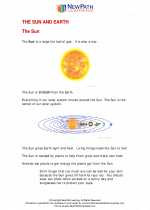 The sun and earth
The sun and earth  Activity Lesson
Activity Lesson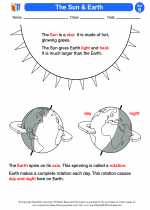 The Sun & Earth
The Sun & Earth  Worksheet/Answer key
Worksheet/Answer key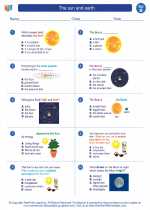 The sun and earth
The sun and earth  Worksheet/Answer key
Worksheet/Answer key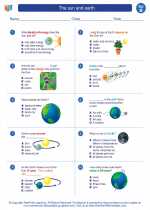 The sun and earth
The sun and earth  Worksheet/Answer key
Worksheet/Answer key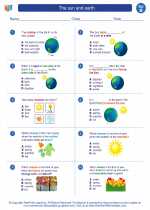 The sun and earth
The sun and earth  Worksheet/Answer key
Worksheet/Answer key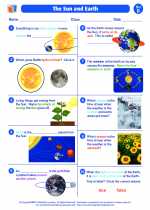 The Sun and Earth
The Sun and Earth  Vocabulary/Answer key
Vocabulary/Answer key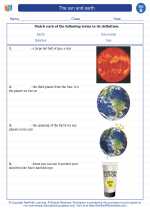 The sun and earth
The sun and earth 

 Activity Lesson
Activity Lesson
 Worksheet/Answer key
Worksheet/Answer key
 Worksheet/Answer key
Worksheet/Answer key
 Worksheet/Answer key
Worksheet/Answer key
 Worksheet/Answer key
Worksheet/Answer key
 Vocabulary/Answer key
Vocabulary/Answer key

The resources above cover the following skills:
Concepts of Earth Science: A student should understand and be able to apply the concepts, processes, theories, models, evidence, and systems of earth and space sciences. A student who meets the content standard should:
Develop an understanding of the cyclical changes controlled by energy from the sun and by Earth's position and motion in our solar system.